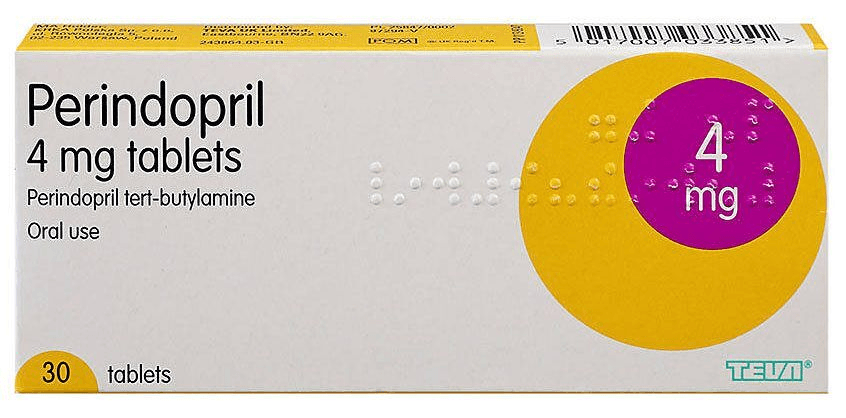Aceon


An ACE inhibitor is Aceon (perindopril). Aceon is used to treat heart failure and high blood pressure (hypertension). Aceon can be used for additional conditions not covered in this medication guide. Aceon shouldn't be used if
If you have a history of angioedema, severe kidney disease, or are pregnant, you are allergic to perindopril.
Ask your doctor if you should start using Aceon at a different dose if you currently take insulin or an oral diabetes medication to treat your diabetes. You might need a diuretic (also known as a "water pill") as a second blood pressure medication. Inhibitors of ACE can result in birth defects. If you are pregnant, avoid using. If you become pregnant, stop using and call your doctor right away. Aceon may have an impact on your blood sugar levels if you have diabetes. As instructed by your doctor, regularly check your blood sugar levels. Inform your doctor of the findings as well as any new signs of high or low blood sugar. Instead of using a regular table spoon, you might need a specialized dose-measuring cup. Inquire where to buy it from your pharmacist. Tell your doctor if you have ever experienced any of the following conditions to ensure that Aceon is safe for you: kidney disease (or if you are currently receiving dialysis), liver disease, heart issues, congestive heart failure, high blood potassium levels, asthma, or allergies.
ACE inhibitors may cause you to sweat less and increase your risk of heat stroke. When exercising, in hot weather, or by not drinking enough water, avoid getting too hot or dehydrated. To avoid dehydration, drink plenty of fluids as prescribed by your doctor, especially in hot weather and while exercising. If you are allergic to perindopril, you should not use Aceon, and you should not breastfeed while taking this medication. ACE inhibitors may cause you to sweat less and increase your risk of heat stroke. When exercising, in hot weather, or by not drinking enough water, avoid getting too hot or dehydrated. To avoid dehydration, drink plenty of fluids as prescribed by your doctor, especially in hot weather and while exercising.
After oral administration, aceon is completely and quickly absorbed. Aceon has a 25% absolute bioavailability. Over the dose range of 2-16 mg, the peak plasma concentration (Cmax) and area under the plasma concentration curve (AUC) increase linearly with increasing dose. AUC is unaffected but administration with food reduces the Cmax by about 20%.
Aceon has a plasma half-life of 12 hours or more in healthy subjects and 18 hours or more in congestive heart failure patients. Renal impairment has no impact on the pharmacokinetics of Aceon.
Perindopril erbumine tablets, sold under the brand name Aceon®, are intended to treat hypertension by bringing blood pressure down. The risk of both fatal and non-fatal cardiovascular events, particularly strokes and myocardial infarctions, is decreased by lowering blood pressure. Aceon and other antihypertensive medications from a variety of pharmacologic classes have all demonstrated these advantages in controlled studies.
Aceon is also recommended for hypertensive patients with left ventricular dysfunction (ejection fraction 40%) to lower cardiovascular risk.
A pregnant woman should not use ACEON unless the potential benefit outweighs the potential risk to the fetus because it has not been studied in pregnant women. The use of an effective method of contraception during the use of ACEON and for a month after stopping should be encouraged for women of childbearing age. If pregnancy develops, ACEON should be stopped right away, and the patient should be informed of any potential risks to the developing fetus.
Patients with known hypersensitivity to any of Aceon's ingredients, pregnant women, and nursing mothers should not take Aceon. Anaphylactic/anaphylactoid reactions and other hypersensitivity reactions have been documented. Individuals with a history of penicillin hypersensitivity and/or a cephalosporin allergy are more likely to experience these reactions. Skin rash, urticaria, pruritus, angioedema of the face, lips, and tongue, and bronchospasm are just a few examples of allergic manifestations. Rare cases of anaphylaxis have been reported.
Patients with hereditary or idiopathic angioedema should not take ACEON. In patients taking ACE inhibitors, angioedema of the face, extremities, lips, tongue, glottis, and/or larynx has been documented. The risk of developing angioedema while taking an ACE inhibitor may be higher in patients who have a history of angioedema unrelated to ACE inhibitor therapy. In such patients, ACEON should be started under close medical supervision and the patient should be informed of the signs and symptoms of angioedema and advised to discontinue Aceon immediately if these occur. The use of ACE inhibitors has been associated with a higher frequency of severe hypersensitivity reactions in some populations of black patients than among caucasians.
Additionally, ACEON should not be used by anyone who has ever experienced idiopathic or ACE inhibitor-induced angioedema, is currently taking an mTOR inhibitor (such as temsirolimus or everolimus), or is taking an aliskiren-containing medication. Laryngeal edema-related angioedema may be fatal. The use of Aceon should be stopped right away if laryngeal stridor or angioedema of the face, tongue, or glottis develops. If necessary, the airway should also be protected, and the proper therapy should be started right away.
In patients with diabetes mellitus or renal impairment (GFR 60 mL/min/1.73m2), concurrent aliskiren use is not advised.
FDA pregnancy category D. If you take Aceon during your second or third trimester, the unborn child may suffer harm or even die. While taking Aceon, use reliable birth control, and let your doctor know if you become pregnant. It is unknown if perindopril enters breast milk or if it might be harmful to a nursing infant. Using this medication while nursing is not advised. Take this medication exactly as directed by your doctor. Read all medication guides or instruction sheets and adhere to all instructions on your prescription label. To ensure you receive the best results from this medication, your doctor may occasionally adjust your dose. Follow the medication's instructions exactly.
Angioedema: When taking ACE inhibitors, angioedema, including laryngeal edema, can happen at any time. Clinical trials for aceon and postmarketing surveillance have revealed that patients of color have angioedema more frequently than patients of non-color. Women are more likely than men to develop ACE inhibitor-induced angioedema, and patients over 65 are more likely to develop it than patients under 65 of either sex.
When the tongue, glottis, or larynx are affected by angioedema, airway obstruction may happen and be fatal. When this occurs, ACEON should be stopped right away, the patient should receive the proper emergency care, and ventilation should be maintained until effective airway management is achieved.
When patients taking Aceon experience angioedema symptoms or signs, the medication should be stopped right away and the proper treatment should be started. Patients who need to be treated with angiotensin II receptor antagonists should do so while ACEON is being given. Avoiding cross-reactivity: Patients who have had angioedema from prior ACE inhibitor therapy may be more susceptible to experiencing it again while taking an ACE inhibitor. Avoid using mTOR inhibitors (such as temsirolimus, everolimus) and products containing aliskiren in patients who have experienced angioedema related to ACE inhibitor therapy. Patients who have allergies to other substances, including medications, foods, or other environmental allergens, should use ACEON with caution.
If any symptoms of angioedema or allergic reactions appear, ACEON should be stopped right away and the proper therapy started. Patients who need to be treated with angiotensin II receptor antagonists should do so while ACEON is being given.
Carpal Tunnel Syndrome: Patients taking ACE inhibitors have been reported to develop carpal tunnel syndrome. These occurrences have taken place without laboratory proof of an autoimmune disease. Aceon treatment should be stopped if carpal tunnel syndrome appears while taking the medication.
Fetal Toxicity: When given to a pregnant woman, ACEON can result in oligohydramnios and fetal renal dysfunction. Following intra-amniotic infusion of ACE inhibitors during pregnancy, fetal injury, premature delivery, and stillbirth may occur in humans; the possibility that these effects signify harmful effects of ACE inhibitors on the fetus cannot be ruled out based on the data currently available. When administering ACE inhibitors to pregnant patients, keep an eye out for any oligohydramnios and fetal renal dysfunction symptoms. Aceon should be stopped as soon as possible if oliguria or progressive azotemia develops while a pregnant woman is taking an ACE inhibitor. Prevent further pregnancy exposure to ACE inhibitors.
Heparin-induced Thrombocytopenia (HIT): Patients receiving ACEON and heparin at the same time have experienced HIT. Isolated reports have suggested that using ACE inhibitors and heparin simultaneously may increase the risk of developing thrombocytopenia (low platelet count). Discontinue the ACE inhibitor as soon as possible if HIT is suspected in a patient receiving heparin and an ACE inhibitor simultaneously. Once heparin-induced thrombocytopenia has been ruled out, the ACE inhibitor should not be restarted.
Hypotension: After taking Aceon's first dose, symptoms of hypotension could develop. Patients who are salt- and/or volume-depleted from prior diuretic therapy and/or other causes (such as vomiting, diarrhea, or sweating) are more likely to experience this. Consider administering a 2 mg starting dose to these patients before increasing it to the desired maintenance dose. Patients should be informed that lightheadedness is a potential side effect of Aceon therapy, especially in the first few days, and that it needs to be reported to a doctor. Patients should be advised to stop taking the medication if they experience actual syncope until they have spoken with their doctor.
4 mg once daily is the typical starting dose. 8 to 16 mg administered once daily is the ideal maintenance dose. If the systolic blood pressure is less than 100 mmHg, up the dose by 2 to 4 mg once every week until the blood pressure is under control or 32 mg/day is reached.
If Aceon must be stopped for any reason, it should typically be stopped gradually over the course of two weeks to prevent hypertension from worsening.
Starting at a dose of 2 mg, patients with mild to moderate hepatic impairment should gradually increase their dose to the desired maintenance dose.
Renal insufficiency and hypotension may be more common in elderly patients. Therefore, in these patients, any asymptomatic drops in blood pressure or serum creatinine need to be closely watched.
The overdose of Aceon has no specific antidote. Treatment for severe hypotension should be supportive and may involve intravenous fluids and/or sympathomimetic drugs (epinephrine and dopamine shouldn't be used as they may make the condition worse by acting Vaso dilatorily). Perindopril is not significantly removed from the bloodstream by dialysis.
Aceon needs to be kept below 30°C at room temperature.








Plus get the inside scoop on our latest content and updates in our monthly newsletter.